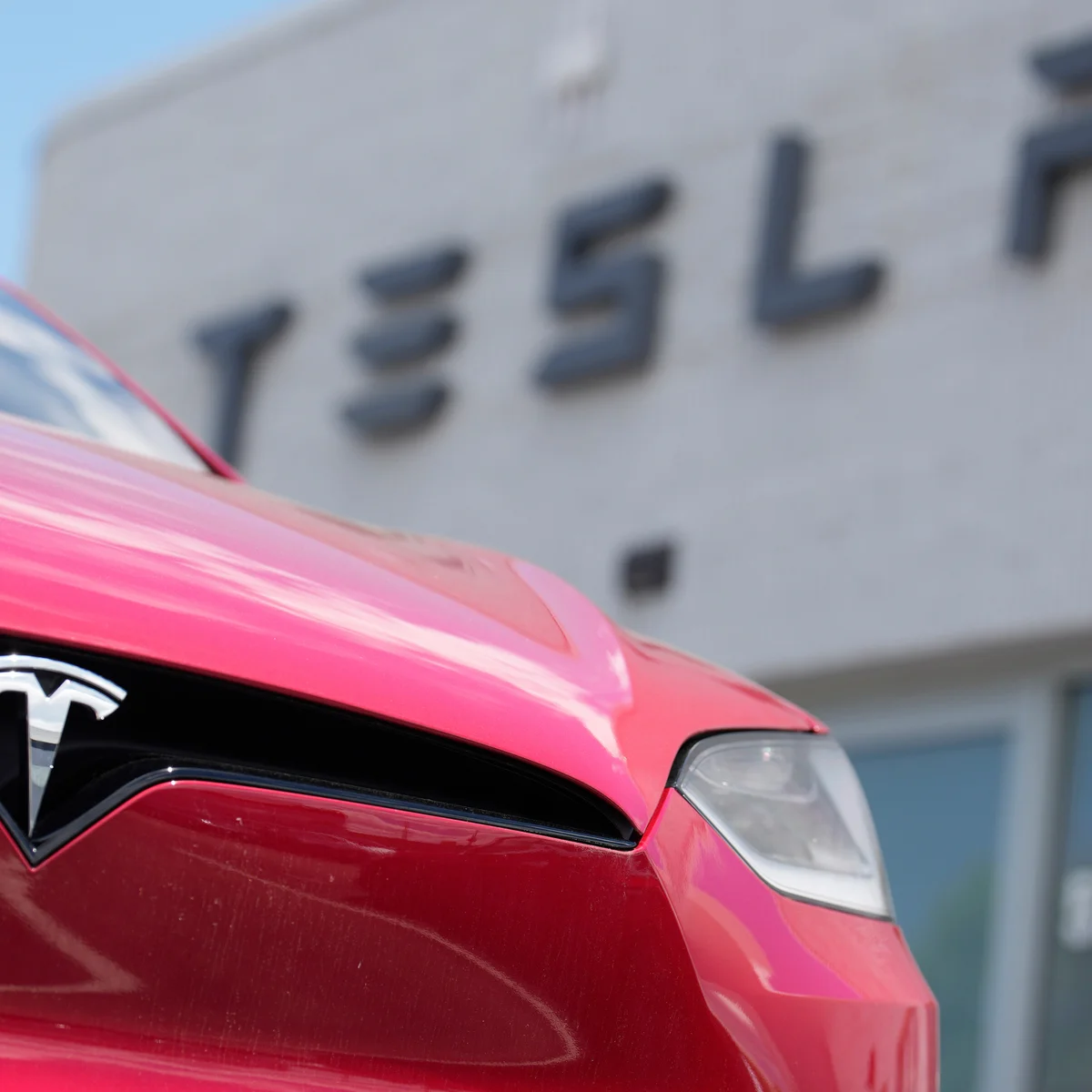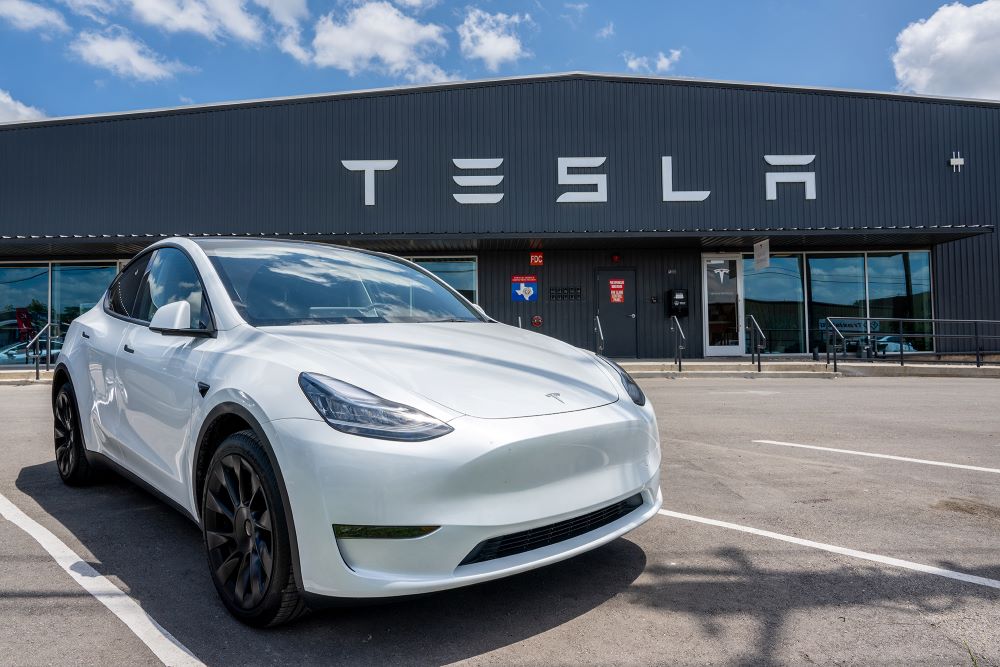Is the first electric-vehicle recession upon us, or is it on the horizon?
As electric-car stocks declined sharply in late 2022, comparisons were drawn to the dot-com bust of two decades ago. Similar to the internet industry back then, the EV sector includes standout companies like Tesla that appear to be long-term winners.
However, it also features younger companies that might lack the financial resilience to weather a downturn, and mid-tier players like Lucid Group, Fisker, and Rivian Automotive, who have prepared as best they can and whose futures may hinge on the severity of the economic conditions.
With the economy at a crossroads between receding inflation concerns and a broad expectation of a recession beginning in 2023, the market is uncertain about how to interpret moves such as Tesla’s substantial price cuts.
These cuts began in China and were followed on January 13 by reductions in the U.S. and Europe. Analysts like Ronald Jesikow of Guggenheim Securities suggest that these price cuts could push Tesla’s profit margins 25% lower than Wall Street’s expectations and negatively impact profits across all Tesla’s competitors.
Conversely, optimists like Wedbush analyst Dan Ives believe these moves are aggressive but necessary to accelerate the EV transition amidst economic uncertainty.
“Many dot-coms didn’t make it,” Ives remarked. “There’s no stress test for a severe recession for an industry that’s in its infancy.”
The future of the EV sector—whether beleaguered EV stocks will recover, whether young companies will secure the necessary funding, and whether the sector will become the job engine anticipated by the Inflation Reduction Act passed last summer—depends first on the economy and second on the markets.
The notion of a “first EV recession” is contingent on whether a recession materializes, either in the U.S. or in China, where Tesla experienced a 44 percent drop in sales in December compared to November as the government struggled to manage Covid-19.
In the U.S., most economists and CEOs anticipate a recession this year, although recent market gains might indicate a shift in investor sentiment towards a “soft landing” for the economy.
One exception is Moody’s Analytics chief economist Mark Zandi, who predicts a “slowcession,” where growth remains positive but slows significantly. Either scenario is likely to negatively impact car sales, which were the worst in a decade in the U.S. last year.
Some auto executives are cautiously optimistic about a rebound, although short-term EV prospects among automakers have become more cautious. However, these scenarios might be too pessimistic if the economy responds positively to the slowing inflation.
The outlook in China, which accounts for more than half of the world’s EV sales according to Clean Technica, is also uncertain. Manufacturing entered a phase of negative growth late in the year, and housing prices are falling.
However, the International Monetary Fund predicts that China will avoid a recession and grow its economy by 3.8% this year. This is half of the 2021 growth rate and slightly below the pace from last summer when China was grappling with new Covid-related shutdowns. China is now focusing on reopening its economy amid the pandemic.
A potential recession does not necessarily mean a decline in EV sales. Many EV models saw significant sales increases last year in both the U.S. and Asia.

The critical question is whether EV companies will grow rapidly enough to keep creating jobs and whether companies beyond Tesla will achieve profitability when investors expect it—or before they exhaust their funding meant to cover startup losses.
This situation mirrors the dynamic faced by dot-com companies like Amazon and eBay as 2000 turned into 2001: a web-stock selloff was already underway then, just as EV companies like Tesla, Fisker, and Lucid experienced sharp declines last year—65 percent for Tesla, 54 percent for Fisker, and 82 percent for Lucid.
Similarly, weaker players such as Lordstown Motors, Faraday Future, and Canoo are scrambling to avoid running out of cash as an economic slowdown looms, either by cutting costs or securing additional funding.
“We look at a combination of balance sheet stability and ability to raise more capital,” said Greg Bissuk, CEO of AXS Investments in New York, which operates an exchange-traded fund that inversely tracks Tesla’s daily returns—essentially betting on a short-term decline in Tesla’s stock. “We think it will be rocky,” he said, referring specifically to mid-tier EV makers.
However, during the dot-com boom and bust, revenue at surviving companies continued to rise rapidly, and those destined to survive became profitable between 2001 and 2003.
Today, EV sales in China are increasing despite ongoing Covid-related challenges, and EVs posted a 52% sales gain in the U.S. By the end of the year, EVs had captured 6% of the U.S. light-vehicle market, compared to only 1% of U.S. retail sales being online in late 2000.
For EV makers, the likely impact of a recession would be slower growth rather than outright decline, as new technology continues to gain market share.
Tesla remains the best-positioned EV maker, according to CFRA Research analyst Garrett Nelson. With the company expected to have generated around $4 billion in late-2022 cash flow by the time it reports fourth-quarter earnings on January 25, and having about $21 billion at the end of the third quarter, it is not at immediate risk of cash depletion.
Nelson noted that Tesla is his top pick among all automakers, citing expectations for a quick stock rebound this year. Tesla’s recent price cut, which brings the popular Model Y vehicles under the price threshold for the $7,500 federal EV tax credit, is expected to enhance the company’s competitive edge and make more vehicles eligible for the credit.
Despite recent challenges, including slower sales growth and CEO Elon Musk’s controversial actions as the new lead owner of Twitter, Tesla’s stock is anticipated to recover.
Nelson pointed out that the company’s earnings estimates do not account for the Cybertruck, which is again expected to launch late this year after delays. Goldman Sachs analyst Mark Delaney also expects vehicle deliveries to reaccelerate by midyear, supported by lower cost structures at new factories and a rebound in Chinese sales.
“The biggest [issue] is Twitter,” Nelson said.
Ives emphasized that the Inflation Reduction Act, which provides tax credits for electric cars and commercial vehicles, might offer crucial support to the industry as companies work to meet domestic manufacturing requirements. Arrival, for example, has refocused on the U.S. market in light of IRA credits for commercial vehicles.
“The pressure in 2023 is less about EVs than the macro environment,” Ives said. “The IRA is not a small point.”
Bassuk, who manages a fund focused on capitalizing on short-term weaknesses in the EV market, also believes in the long-term viability of EVs despite current challenges. “Those with the capital to get through 2023, we’d bet the farm on,” he said.







Leave a Reply